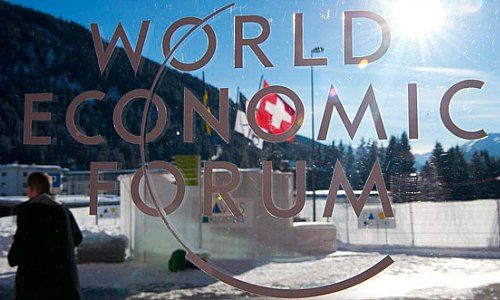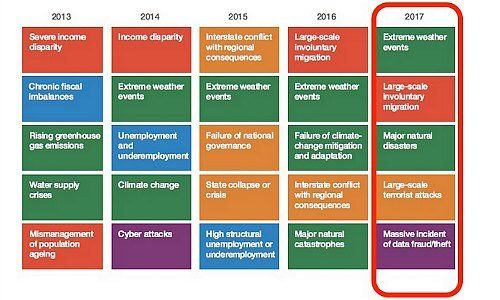The World Economic Forum 2017 aims to be different – in times of increasing skepticism about globalization. That's the forum's promise. Here are nine facts proving the contrary.
1. Global Elite? WEF 2017 Is a Congregation of Losers
The World Economic Forum (WEF) has defined itself as a meeting for the global economic and intellectual elite. This year, it is the other way round: The WEF is a congregation of losers. A year ago, they claimed Brexit would never happen and rubbished the possibility of a U.S. President Donald Trump. WEF today faces realities it didn't want. The elite will have worked very hard on the fine-tuning of their speeches this year.
2. WEF Won't Make the Correct Predictions in 2017 Either
The forum has been disqualified as an economic early warning system and visionary periscope into the future. The «Global Risk Reports» are the expression of this impotence. The «Financial Times» recently compared the reports of 2016 and 2017, counting key words and making a juxtaposition. WEF also didn't anticipate the financial crisis.
Number of times mentioned in 2016:
- Donald Trump = 0
- Brexit = 0
- European Union = 1
- Nationalism = 1
- Basic Income = 0
- Globalization = 15
- Fake News = 0
- Crisis of Western Democracy = 0
- Democracy = 4
- Anti-Establishment = 1
Number of times mentioned in 2017 Risk Report:
- Donald Trump = 9
- Brexit = 18
- European Union = 8
- Nationalism = 8
- Basic Salary = 5
- Globalization = 25
- Fake News = 1
- Crisis of Western Democracy = 3
- Democracy = 42
- Anti-Establishment = 9
3. WEF Sees Terrorism as a Danger – Surprisingly
The reports each year for the past decade mentioned the five biggest global risks. The WEF this year produced an overview of how perceptions have change over the years. The experts for the time mention terrorism as a global risk.
4. Facebook Is Splashing Out

Social-media giant Facebook has built its own conference center in Davos. The two-storied container called «Alpenchalet» will cost a $1 million a day. After the show, the chalet will be demolished again.
5. Shakira, the Voice of the Good
The WEF sees itself as a place for humanitarian work and is awarding prices to celebrities doing good deeds. Violinist Anne-Sophie Mutter, actor Forest Whitaker and Shakira, the pop-music queen are the honored this year. Shakira received a «Crystal Award» for her efforts to give children access to schools. Here's here call on the global elite to do more for children.
6. Donald Trump – Absent and Yet the Crowd-Puller
Klaus Schwab, the founder of the WEF, didn't invite Donald Trump to Davos. Well, there would have been a difficulty of agenda: the president-elect is celebrating his inauguration on January 20. One of his many new advisers, hedge fund manager Anthony Scaramucci, will represent him in Switzerland. Not on official duty though. WEF veterans remember Scaramucci for his wild 2011 party. Participants likened it to a drunken mess.
7. A Stage for Whingers
The start of the occasion usually sets the stage for whingers of all sorts – presenting their studies underscoring the unimportance of the event. This year, the turn was on Sage consultancy. The claim: the forum doesn't represent the views of small companies and the needs of smaller businesses in the developed and the emerging markets don't get a voice.
8. Big Business a Pull for Big Business
The WEF is a magnet for big business. Heads of state are putting their heads together to work on their networks at the expense of taxpayers. Companies heads and billionaires don't need to worry either. The days of the forum are crucial for Davos, filling the empty coffers of touristic enterprises going through tough times, devoid of snow. An example? Johanna on Airbnb put her apartment with six beds up for hire. She charges 4,294 francs – per night.
9. One Claim to Success
Gender has always featured importantly. In 2011, the forum called on companies to have at least one female representative out of six at the WEF. This year, women will make up 21 percent of all representatives (with the total measuring up to 3,000).
































